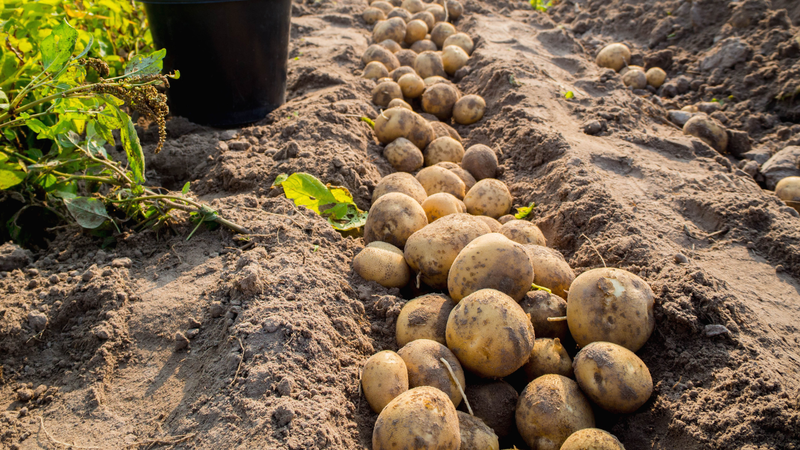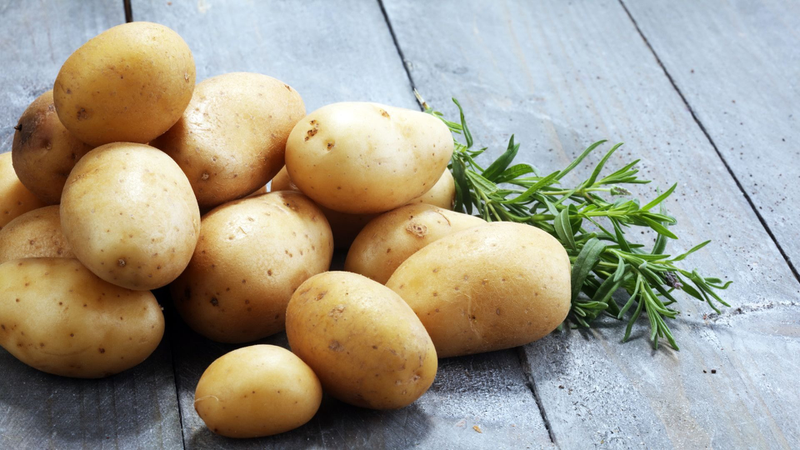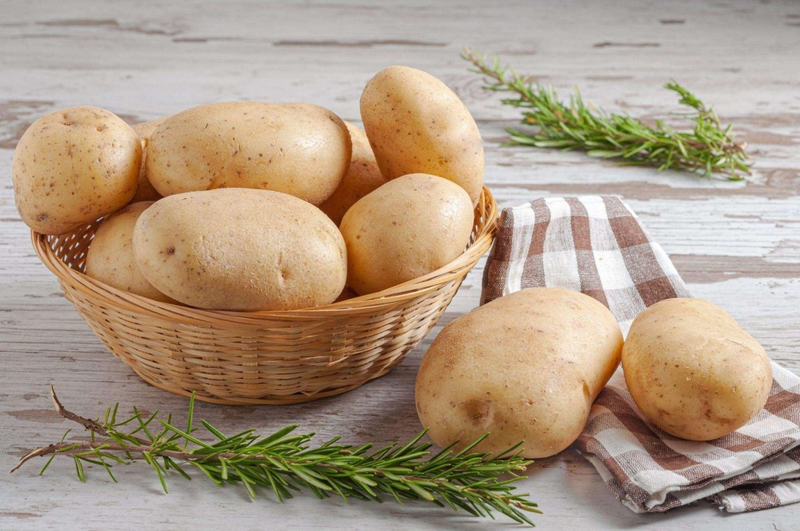Potatoes are a familiar and nutritious food that not only helps keep fit but also beautifies the skin. However, who should not eat potatoes? The following article will answer and provide detailed information related to this food.
Potatoes contain abundant nutrients, help replenish energy and bring many health benefits. On the other hand, in some cases, eating potatoes can have negative effects on health, especially when not used properly.
Overview of potatoes
Origin and classification
Potatoes, a familiar food in daily life, originated in the sunny tropical region of South America, where they were grown and used from about 8000 to 5000 BC. In this area, wild potatoes can still be found growing naturally.
Potatoes belong to the nightshade family, along with plants such as tomatoes and eggplants. The tuber that we often use is actually the underground stem that swells underground, which plays a role in storing nutrients to nourish the leaves on the surface.
Outstanding features
Potato tubers have the following basic characteristics:
- Color: In addition to the familiar light yellow color, potatoes also have other colors such as purple, green, black.
- Nutritional composition: Potatoes contain up to 80% water, and are also rich in carbohydrates, protein and fiber. Notably, the way potatoes are processed can significantly change the nutritional content. For example, when cooked, potatoes contain about 7% resistant starch, but when cooled, this number can increase to 13%, bringing benefits to digestive health.

Potatoes are a familiar food in everyday life.
Health Benefits of Potatoes
Potatoes contain many nutrients, providing the following benefits:
Boost immunity
Potatoes provide about 45% of the daily vitamin C requirement, helping to prevent colds, bleeding gums and infections.
Support digestion
The high carbohydrate content makes potatoes easy to digest, while fiber helps the stomach function more effectively.
Enhance cardiovascular health
The fiber in potatoes helps reduce cholesterol, while vitamins C, B6 and carotenoids support stable cardiovascular function.
Beautify the skin
Potatoes also have a beautifying effect on the skin thanks to containing many nutrients such as vitamin C, vitamin B6, potassium, magnesium, zinc and phosphorus. These ingredients help nourish the skin to be smooth and healthy, regardless of whether you eat potatoes directly or use them as a mask on the skin.
In addition, potatoes are also a popular vegetable that can be included in children’s menus to supplement nutrients. Using potatoes properly not only aids digestion but also benefits overall health.

Potatoes contain many nutrients that are good for health.
Who should not eat potatoes?
Many people wonder who should not eat potatoes. Although potatoes bring many benefits, some groups of people need to be careful when using this tuber.
People with diabetes
Potatoes have a high glycemic index, which can quickly increase blood sugar levels and stimulate insulin production. Therefore, people with diabetes should limit their intake of potatoes or choose a way to cook them to reduce the amount of sugar they metabolize.
People with potato allergies
Who should not eat potatoes? Those are people with potato allergies. Some people may be allergic to potatoes, leading to skin irritation, diarrhea, headaches or indigestion. If these signs appear, you should stop eating potatoes immediately and consult a doctor.
People on a diet
If you only eat potatoes while losing weight, your body is likely to be deficient in important vitamins and minerals such as vitamins A, E, K, calcium, and selenium.

Who should not eat potatoes is a question many people are interested in.
How to eat potatoes for good health
After understanding who should not eat potatoes, you also need to learn how to eat potatoes properly to protect your health.
Keep the potato skin on
Potato skin contains a lot of fiber, vitamins and minerals. Keeping the skin on when cooking helps you maximize the nutritional value.
Limit cooking with oil
Potatoes do not contain cholesterol, but frying potatoes in oil can increase bad cholesterol, causing the risk of atherosclerosis. Therefore, the best way to cook potatoes is to boil, steam, or bake.
Don’t eat too much
Eating too many potatoes, especially when fried or eaten with fatty foods such as cheese, can cause weight gain. Use potatoes as part of a balanced meal to avoid negative effects.
Tips for using potatoes
Potatoes are healthy foods if used properly and reasonably. People with diabetes, pregnant women, people with allergies or those on a diet should limit and consider when adding potatoes to their diet. In addition, combine potatoes with other vegetables and foods to ensure adequate nutrition for the body. A diverse and healthy diet not only helps improve health but also minimizes the risks from an unbalanced diet.

Potatoes are healthy food if used properly.
Hopefully the information provided above has answered the question of who should not eat potatoes for many people. Potatoes are a nutritious food, but not everyone should eat them regularly. Use this tuber properly to maximize the benefits that potatoes bring, while protecting your health comprehensively.





